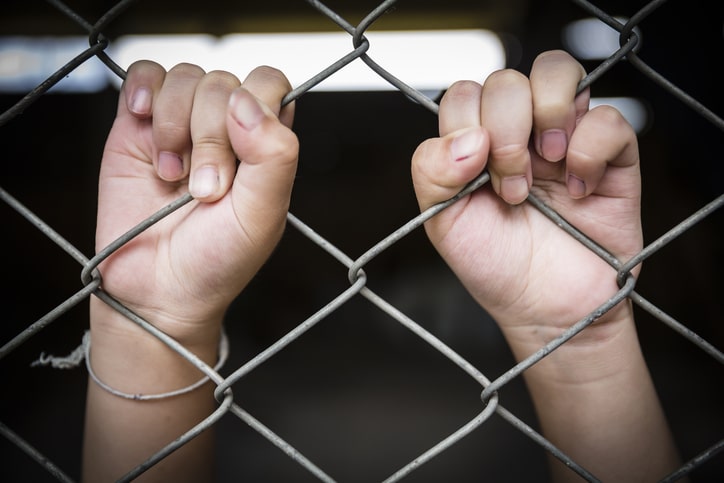The Legal Rights of Juvenile Offenders in Florida: What Every Parent Should Know
As parents know well, teenagers can get themselves in serious trouble. In some cases, a youthful indiscretion could even lead to juvenile criminal charges. According to comprehensive data from the Florida Department of Health, more than 36,000 juvenile arrests were made in the state in 2022. At The Law Office of Denise Miller, PA, we have extensive experience helping parents navigate these cases. In this article, our Stuart criminal defense lawyer provides a comprehensive overview of the key things that parents should know about the juvenile justice system in Florida.

An Arrest is Made: Know What Happens Next
Was your child arrested in Florida? There are two things that can happen at the outset of the case:
- Release to Custody Parents (More Common): In many cases—especially if the offense is less severe—law enforcement may decide to release the juvenile directly to their parents or guardians. Most juveniles in Florida who are arrested will be released to their parents.
- Held in a Juvenile Detention Facility (More Serious): For more serious offenses, the juvenile may be taken to a detention center. They stay until a detention hearing—which usually happens within 24 hours. A juvenile will typically only be detained if the criminal case is very serious or if the parents are deemed unwilling or unfit.
Four Basic Rights that Juveniles Have in Florida’s Criminal Justice System
Juvenile offenders in Florida have many of the same rights as adult offenders. However, they also have some additional legal protections. Here are key rights that parents should be aware of:
- The Right to Remain Silent: Juveniles have the right to remain silent when being questioned by police or authorities. They do not have to answer any questions that could incriminate them.
- The Right to an Attorney: If a young person is arrested, they have the right to have an attorney represent them. A Stuart, FL, criminal defense lawyer with experience navigating the juvenile justice system can help parents navigate the case.
- The Right to Trial: Juveniles have the right to a trial. However, assuming the case stays in the juvenile justice system, this trial is before a judge, not a jury. The judge listens to the evidence to determine if the juvenile is delinquent.
- The Right to Get Support from Parents/Guardians: Throughout the process, juveniles have the right to communicate with and receive support from their parents or guardians. Parents can and should be present during police questioning and court appearances.
The Juvenile Justice System Strongly Favors Rehabilitation Over Punishment
In Florida, the juvenile justice system places a strong emphasis on rehabilitation rather than punishment. These cases are handled by the Office of Family Courts’ Delinquency Division—meaning the juvenile justice process is distinct from the adult criminal justice process. The state’s approach is rooted in the idea that juvenile offenders are in a crucial stage of development and, with the right support and interventions, can address the underlying issues contributing to their delinquent behavior. Some potential rehabilitative options include:
- Counseling and Therapy: Professional help of this kind is designed to address emotional, behavioral, and mental health issues.
- Educational Programs: To ensure juveniles continue their education and receive support for any learning disabilities or challenges.
- Community Service: To foster a sense of responsibility and connection to the community. A mentorship program may be linked to community service.
- Substance Abuse Treatment: For juveniles struggling who are struggling with addiction or other issues involving drugs or alcohol.
Note: A juvenile offender can be charged as an adult in Florida in certain cases. For 14/15-year-olds, there are 21 specific felony offenses that could result in an adult criminal charge. For 16/17-year-olds, any felony offense could result in a juvenile being charged as an adult—there is prosecutorial discretion. For parents, keeping your kid’s case out of adult care is extremely important. At The Law Office of Denise Miller, PA, our Florida juvenile justice attorney can help.
Getting Juvenile Criminal Records Sealed is Often Possible
Finally, parents should know that juvenile criminal records (delinquency records) can eventually be sealed in Florida. The process effectively hides their records from public view—aiding in job searches, education, and housing applications and allowing a young person to get a truly fresh start. Eligibility always depends on the nature of the offense and the young person’s subsequent behavior.
Contact Our Stuart Juvenile Defense Lawyer Today
At The Law Office of Denise Miller, PA, our Florida juvenile justice lawyer is a compassionate, solutions-focused advocate for young people. If your teenager is facing any type of criminal allegation, we can help. Contact us today for your confidential, no-obligation initial consultation. From our Stuart law office, we handle juvenile justice cases in Martin County and beyond.






